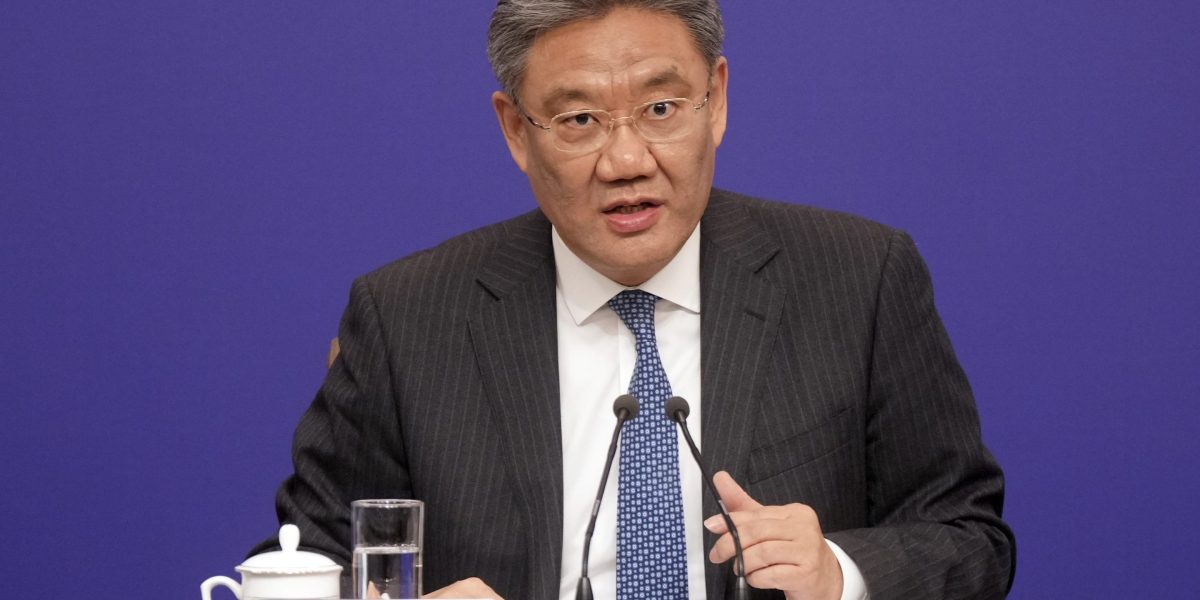This post was originally published on this site
https://fortune.com/img-assets/wp-content/uploads/2024/04/GettyImages-2064366920-e1712563427301.jpg?w=2048
Western governments are trying a new argument against China’s dominance in green energy and electric vehicles: That Beijing is deliberately fostering “overcapacity” in these industries. According to officials like U.S. Treasury Secretary Janet Yellen, China is using state support to help these sectors expand beyond what the domestic economy can consume—and push out firms in the U.S. and Europe.
Yet China commerce minister Wang Wentao, currently on a trip in Europe, said accusations that China is over-investing in these industries are “groundless.”
China’s EV companies rely on “technological innovation, an efficient production and supply chain system, and sufficient market competition,” as opposed to state subsidies, Wang said. He made the comments during a Sunday roundtable with major Chinese companies involved in the EV supply chain, like BYD, Geely, and battery maker CATL, according to a readout posted by China’s commerce ministry on Monday.
Wang said that China would help EV companies defend their “rights and interests,” and that the industry had made an “important contribution” to the global green transition.
Also on Sunday, China Premier Li Qiang urged the U.S. to “look at the capacity issue objectively,” and to refrain “from politicizing economic and trade issues or overstretching the concept of national security.” Li made the comments as he met with Yellen, during the Treasury Secretary’s trip to China.
China and Europe
Wang’s visit to the French capital comes amid an ongoing European anti-subsidy probe into China-made electric vehicles. If European officials conclude that Chinese EVs benefit from an unfair level of state subsidies, they could impose additional tariffs on EV imports.
In early March, the EU said it was close to imposing these penalties, citing evidence of Beijing state support. European imports of Chinese EVs have dropped 20% year-on-year in the first two months of the year.
China’s response to the European probe has been a mixture of sticks and carrots.
Beijing launched an anti-dumping investigation into European brandy imports, particularly from France, soon after the EU announced its EV probe. Chinese officials used a similar playbook a decade ago after the EU announced an anti-subsidy probe into China-made solar panels; Beijing retaliated with investigations into European steel tubes and French wine.
Yet last week, Wang Yi, China’s foreign minister, pledged to increase imports of high-quality products and services from France, following a meeting with French foreign minister Stéphane Séjourné in Beijing.
Market competition
Beijing has provided support for its EV sector starting in the early 2010s, including tax breaks, infrastructure subsidies, and incentives for consumers to switch to electric cars. The government has recently started to roll back subsidies to encourage firms to rely less on state support.
Leaders in the industry have echoed Wang’s view that competition, not subsidies, explains China’s EV success. China’s EV manufacturers need to develop new models twice as fast as legacy automakers just to keep up, Zhang Fan, head of design at state-owned Guangzhou Automobile Group, said at Fortune’s Brainstorm Design conference last year.
And in February, BYD Europe president Michael Shu claimed the reason the company could sell its EVs so cheaply was due to better “management efficiency,” rather than state support, in an interview with the Financial Times.
Analysts, too, say that China’s EV sector is now marked by market competition than state support. “Fierce competition” in the industry has helped bring costs down, Paul Gong, executive director of auto research at UBS, said at the Fortune Innovation Forum in March.
One more EV leader who thinks that China’s EV companies can outcompete with legacy automakers: Tesla CEO Elon Musk. “If there are no trade barriers established, [China’s car companies] will pretty much demolish most other car companies in the world,” he said during an earnings call in January.




